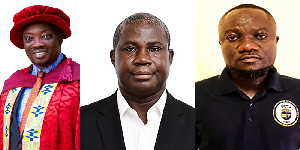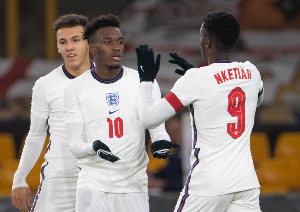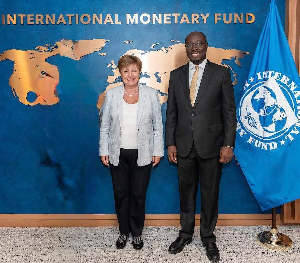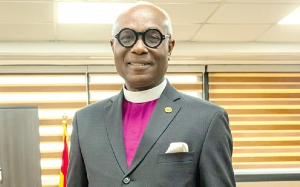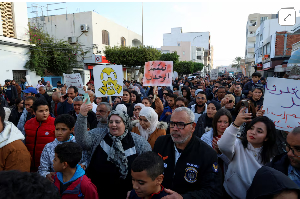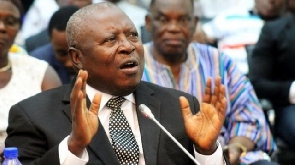Have We, and Do We, Behave(d) Less Intelligently? Examining Kwesi Yeboah’s Theory on Twenty-First Century Ghanaian Intelligence
The title of this article is not meant to cause offense to anyone. It is an invitation to every Ghanaian to join the debate on one of our nation’s many taboos; the falling standards in our nation’s education and how it affects our thought processes. In one of his many scholarly heartbreaking written reflections, our own Kwesi Yeboah argued that Black Africans have behaved less intelligently. I belabored myself with the task to deconstructing the words of this great scholar only to conclude that, our level of investigative thinking, ability to synthesize knowledge and our maturity in accommodating new ideas are inadequate. Since posting his article on Ghanaweb, I have engaged some Ghanaians to test Kwesi Yeboah’s uneasiness with twenty-first century Ghanaians’ unintelligible attitude. To my greatest disappointment, we have always negated our similarities, and instead gone for immitigable differences to serve our political ends. In wake of the preceding, we have ignored important national issues that require unremitting attention and resolution. In my opinion, the unruliness we display toward each other and the distortion of good intentions by certain ill-behaved actors, who see politics in every human thought, is not good for our nation’s intellectual development.Since becoming a frequent visitor on Ghanaweb, I have noted that some of us have failed to take advantage of the educational value of this homepage. Conversely, we have expressed our pent-up thoughts with high levels of toxicity many of which are unworthy for philosophical engagements. Like children, we have taken to issues that cause interminable diarrhea, and have abandoned salient subjects that are crucial to our nation’s development and the intellectual growth. Our lack of contemplation to engaging others on an intellectual keel, even when there is no need to do so, and our obsession with responding to articles without paying attention to the meta-message underline our befuddled state of mind. This viral pathogen, which is rooted in our culture, and hardly respects plurality and basic courtesies, has diminished the utility of any cyber civil discourse. We have converted Ghanaweb into a cruel world, where respect means nothing to us. As some of you would agree with me, thoughtless minds hardly compute the price-tags that come with worshipping irrelevant subject matters. By our actions, and/or inactions, we allowed our nation to be consigned to a lesser station especially in a world where competing ideas remain the foundation of development and intellectual freedom.
While I am not an admirer of some of human-elements on Ghanaweb, some of our best writers, here on Ghanaweb, can join Mr. Okyere-Bonna to bring cyber-debates to our nation’s schools. In his judgement, which strongly support, bringing some of the socio-political issues discussed here on Ghanaweb into the nation’s classrooms will empower the nation’s many hapless young students to acquire a voice to challenge the educational insufficiencies in our schools. In my mind, some of the many political articles posted on Ghanaweb do not speak to the daily afflictions of students in rural Ghana. Rather, they tend to adulate the very policies that have deepened the misery of our students, and battered our nation’s international reputation as a citadel of knowledge production. How can we force our politicians to bring dignity to our schools? How can our commentaries inspire Ghanaian students to acquire new ideas, and be proud to defending their positions with intellectual clarity? How can we convert this site into a resource for our students by minimizing disgraceful comments from those who imply to knowing everything, yet know little? In the vast space of knowledge production, one acquires respect, only, by engaging others on issues, and not in an insulting bout to get their political message to their bored audience?
In the twenty-first century, many of us do not feel the pride that once came with having Ghanaian education. The contentment that once came with having Ghanaian education and certificate is long gone. In some Western societies, some Ghanaian university graduates have little choice but to take upgrading courses to receive foreign equivalencies before they are accepted into academic programs. Some of the reason(s) behind the preceding, among many others, are; (i) the prejudiced assumption that the holder of Ghanaian degree(s) may have doctored them, and/or (ii) the intelligence of the applicants is overrated in their home country, and that they must take basic courses to prove themselves. While the above is troubling, and bears all the hallmarks of systemic racism, there seems to be some good reasons for the unnecessary barriers placed in the way of certain Ghanaian students who pursue higher education in the West. Unlike the West where emphasis in placed on analytical value and one’s contribution to scholarship, our nation’s post-1980 education is burdened by neo-colonial narratives, spurious pedagogical injections, and the over-inflation of students’ intellectual ability. Here on Ghanaweb, which is a reflection of our nation’s socio-intellectual demography, not a day goes by without reading one person, in particular, going through the nuisance of rewriting an my articles without adding anything of value to the topic under discussion. There is another individual, who in his attempt to prove his knowledge of International Law limits himself to the Banjul Charter and British Immigration Statutes. Whereas, it is easy to earn unworthy honours for critiquing articles, the question is, how many articles have these individuals authored for public scrutiny? Do these people add any value to the nation’s education when they can hardly write a sentence without cussing at his dissenters, and belittling themselves in our eyes?
In today’s Ghana, it is easy to finding nation’s graduates using sweeping statements to mak(ing) an argument that requires verifiable facts than coming across a stray dog crossing the Nima Highway. When challenged to develop their thoughts further, the enquirer is met with insults, and “I am a university graduate” attitude. Matter of fact, someone, here, went to the extent to tell us about everything about the African Studies Department at Legon, which I never asked for, and care less to know(ing). The last time Legon was described as one of the second-class universities in the world, this individual was quick to condemn the authors of this report as racists. This person did not care to investigate the research methodology used in making such a deduction. Even though we love Legon as our nation’s premier university, we must admit to the vinegary verity that the quality of education at our nation’s leading university has gone downhill, over the years, and need serious reforms.
Some of the ways to address(ing) the instructive problems in our nation’s education is to compare the quality of our students with other countries. While our students are shrewd in reproducing reading texts, one of the many residual legacies of colonial education, they lack the courage to contest their knowledge in discussion groups. In this day, and age, it breaks my heart to see a Ghanaian graduate student attribute mental health issues to spirits (i.e. beyie). How can we trust the professional judgement of a learned graduate who chooses to bypass empirical variables, and attribute causality to the unverifiable?
We must also move away from the child’s belief that education is just about the measly supply of textbooks to students. Do textbooks serve any purpose, when some of our teachers lack the required qualifications to teach in our nation’s schools? What is the value of textbooks if they fail to transform the human mind? What is the significance in producing a high number of students who lack intellectual curiousity to investigate the unexplored field(s) of knowledge? How does a teacher measure a student’s academic ability when s/he allows a female-student to present “Fufuo” and “Akrantie-Nkwan” as part of end-of-term performance evaluation, and awards her an “A” grade? What does the female-student’s culinary skill in the preparing “Akrantie-Nkwan” have in common with her academic ability? As a nation, we must turn away from an attitude that blames others for our self-inflicted inadequacies, and instead question our intelligence and slipshod attitude.
For our students to act intelligently, the government must bring into being a new pedagogical culture that encourages intellectuality. This instructive model must not only engage our students on an intellectual keel, it must also extract the best out of them, and offer them the tool to challenge the implications of self-serving policies, and the double standards that belie our democracy and the preaching of false consciousness to the society’s subaltern. In a culture where students are repressed, and are hardly allowed to freely express themselves by persons in authority, one should not expect our nation to produce child-prodigies in the twenty first century. In the current state of affairs, some of the nation students see knowledge-acquisition as an inconvenience, and would prefer to cut corners through the nation’s corrupt system.
Given our obsession with degrees, our nation is slowly becoming a destination of choice for substandard professionals. In support of Kwesi Yeboah’s position, the emerging Ghanaian student population will continue to behave less intelligently so long as our schools continue to produce weak-minded graduates, and political leaders; one of whom, sadly, is calling for the slaughter of the ex-first family. Well, I thought education was meant to transform the human mind and make us think as rational actors. In his thoughtful assessment of Ghanaian (i.e. Black) intelligence, and our unpredictability, Kwesi Yeboah was exact to attributing our nation’s underdevelopment, and sorry state, to our embryonic intelligence, and our delusions in not accepting the deficits in the way we think and behave. Hope all is well, and I wish all well, even if all is not yet well. Good day and cheers.



